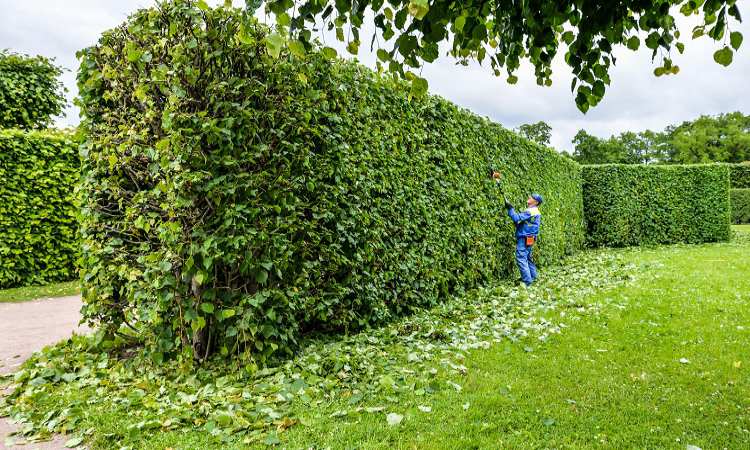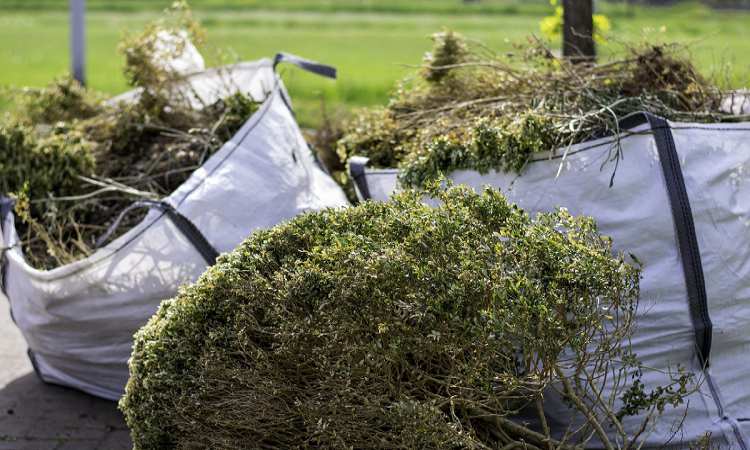 Has your property recently undergone landscaping upkeep or a yard makeover? Or did a bad storm wreak havoc on your yard, scattering debris everywhere? If you answered yes to either, you might have to deal with large mounds of yard waste.
Has your property recently undergone landscaping upkeep or a yard makeover? Or did a bad storm wreak havoc on your yard, scattering debris everywhere? If you answered yes to either, you might have to deal with large mounds of yard waste.
Yard waste is organic rubbish such as twigs, leaves, and dirt that is generated as a result of land clearance, major renovations, and weather occurrences such as storms. Such wastes might be particularly heavy during the growing seasons. If you’ve accumulated a lot of yard waste for some reason, it’s a good idea to learn how to dispose of it safely. Why, though, should you do so?
Table of Contents
The Impact Of Yard Wastes
Plastic wastes aren’t the only type of waste that can harm the planet—green wastes could, too. For example, the stats from The ABC’s War on Waste series highlights Australia’s waste problems, including their organic wastes. It showed some worrisome facts about the country’s garbage situation, which is true for most countries. To save the environment, such a crisis will necessitate everyone’s cooperation.
Despite being sourced from plants, yard wastes have the potential to be dangerous to the environment when disposed of in landfills. In there, they decompose, emitting methane and causing an acidic environment. Methane is explosive, toxic, and difficult to detect. And, once acidity is formed, other chemicals may spread, leading to rapid groundwater and water pollution increases. The effect could be devastating.
However, gardens need to be mowed frequently. And the trees, hedges, and bushes keep growing new branches, so they need to be cut down all the time to keep them in control. Still, it’s not the act of gardening that’s the problem. It’s how to get rid of all the extra yard waste. Most people find this tricky. So, what should you do to get rid of your garden waste without hurting the environment, and how should you do it?
Safe Ways To Get Rid Of Yard Waste And How To Do It
If you’re left with large piles of debris in your yard, you’ll need to dispose of them properly. Here are some of the most common ways to get rid of garden waste, so you can find the best way to clean up after your home renovation project or after a storm.
1. Hire A Junk Removal Company
Nowadays, junk removal companies offer services for hauling yard waste. Hiring one would be highly convenient for you since they perform the heavy lifting. Their fees may be determined by the amount of space taken up by your debris on their truck.
There are many ways to find a junk removal company, but one of the best is to ask around. Recommendations may assist you in locating reputable junk removal professionals in your area. Once you’ve found one, they’ll arrange for a delivery window and dispatch professionals to estimate the removal’s cost.
2. Rent A Roll-Off Container
Renting a dumpster is another convenient method of removing yard debris. You need merely to contact and arrange for a convenient drop-off time and location. Then, you can load the container while you work on your garden. When you’re done, only then the bin and all your yard waste will be taken away. You can keep your container for an entire weekend or later and clean it at your leisure!
3. Burn Your Yard Waste
If it’s legally sound in your area, you may also opt to burn your yard wastes. It’s important not to burn yard waste in an open space; rather, use a closed fire pit that’s at least 150 feet from your neighbors’ homes and 50 feet from yours. The best time to start a fire is on a quiet, windless day with someone nearby who has access to a hose, as fires can quickly get out of control.
 4. Start A Compost
4. Start A Compost
Green wastes, including twigs, hedges clippings, plants, veggie food scraps, and flowers, can all be composted. As a result, you can take advantage of this and start a compost at home. Composting not only saves money on trash but also creates a valuable resource in the form of compost, which is suitable for the cultivation of plants or flowers both indoors and outdoors.
5. Recycle Yard Waste
Green waste can be recycled and used to create soil, fertilizer, and a variety of other products. Topsoil, potting soil, compost, and repurposed mulch are just a few examples. When properly recycled, it has a beneficial effect on plant growth and landscapes.
Green waste-derived products can help minimize the requirement for synthetic fertilizers. Such products don’t have a detrimental effect on the environment.
Final Thoughts
If you manage your yard on your own, separate the garbage and determine the best way to dispose of it. You may refer to the methods described above as a guide. If you do nothing with your yard debris, you’ll become a contributor to environmental problems in the long run.






